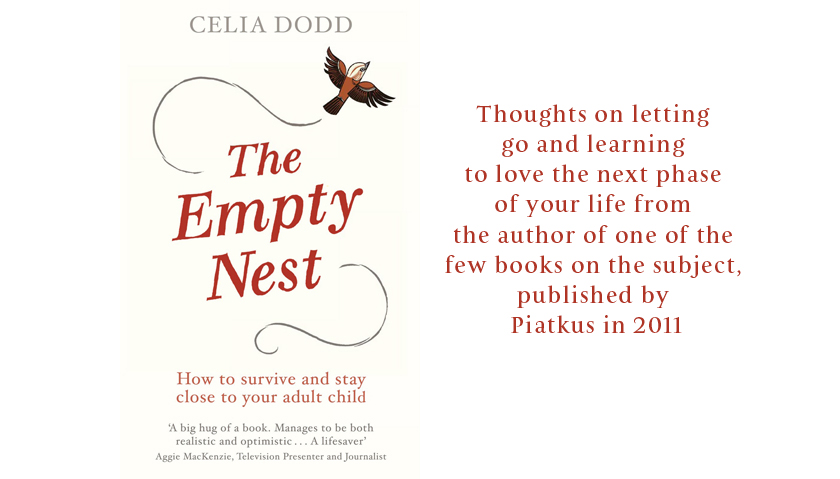Anxiety and the empty nest
One unexpected advantage of the empty nest is that you worry less about your children. At least I do, most of the time. And that's been a huge relief, because when they were growing up my imagination ran riot with images of muggings and life-threatening illness and fatal car crashes. These days I relish not waiting for their key to turn in the lock; I like not having their lifestyle in my face.
Of course all those nightmarish possibilities haven't gone away. And there are new worries. Will they ever find a job they love? And every parents' eternal anxiety: are they happy?
But two things have changed:
(1) I've learned that my children can cope without me, even in the most difficult situations. Indeed they cope just as well - if not better - than I would.
(2) These days I don't usually hear about the bad stuff until it's too late to do anything. It's still horrible to be shown selfies of my son's gory eye injury, but much easier to deal with now that it's healed up. I would much rather hear about scrapes and scares after the event - although I admit they come back to haunt me if I let them. I do my best not to.
Parenting panic
It's almost as if I've got out of the habit of worrying. And that can make panic moments harder to deal with. Because crises invariably happen when you least expect them.
Just as you're learning to believe that no news really does mean good news, and you're starting to enjoy having more time and energy for yourself, the phone rings. There you are, updating your website/ sitting on a Greek beach/having lunch with a friend and it's Alice in a panic from Cambodia. She's lost everything: passport, money, phone…..The line goes dead and there's no way of contacting her, no way of knowing how it happened: was she attacked? Is she hurt? The next 24 hours are a nightmare.
In these circs you have no alternative but to drop everything. Even if there's not much you can do practically, it's pretty impossible to concentrate on anything until you know they're safe.
But there are plenty of less serious situations where it's a much tougher call to know what to do: Drop everything to help? Let them sort things out themselves?
Parents: be selfish!
And sometimes the best thing is to be selfish - to put your own needs, and (just as important) your partner's needs, first. That's hard to believe (it's hard for me even to write!) because being selfish and being a parent just don't go together. But parents are allowed to be selfish once the kids have left. It's our time.
Empty nesters' new juggling act
But this new juggling act is perhaps the most difficult one yet: how to forge our own new direction, and learn to live without our children, while still being there for them when they need us.
It took me a long time to get the hang of this. At first I lived my life like a swimming pool lifeguard, lurking around at home just in case I was needed. My own life was on hold, and that was frustrating.
Then I remembered something one of the wise mums in my book said: 'I know my children are going to get into scrapes. But I also think they've got the emotional toolbox to cope.'
And I realised it was time to put myself and my husband's needs at the top of the list.
Tips: How to stop worrying
Drop everything when they're in trouble, of course. But don't change course for minor stuff. Children learn and grow from making mistakes - our job now they've flown the nest is to let them.
Think hard about your partner's needs, and talk to each other about this new phase of your relationship.
Trust your child and the way you've brought them up.
Try and see them as an outsider would: as an independent, capable adult.
Don't put off booking holidays or weekends away just in case a child might need you.
It's far better to cancel or postpone once in a while than it is not to do stuff at all.
Be spontaneous.
If you find yourself making excuses not to do something you'd enjoy, question them. Ask yourself why not?

